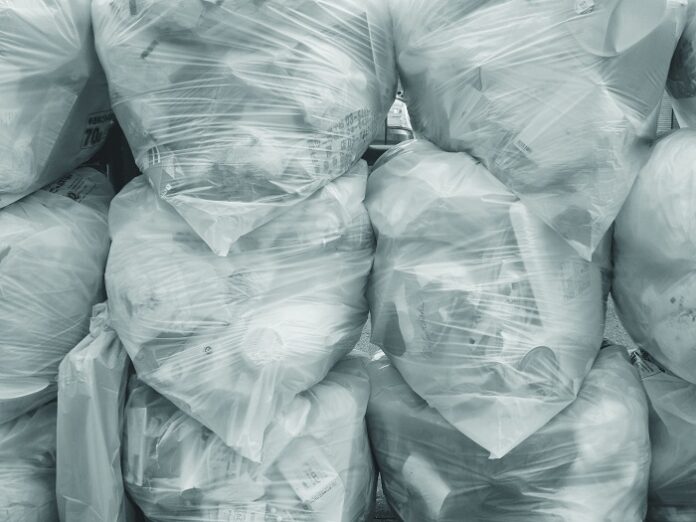It’s a well-known fact that businesses generate huge amounts of waste. To give you a bit of perspective on the extent of the issue, it is estimated that only twenty businesses are responsible for producing 55% of all global plastic waste. And the worst part about it is that only a small amount of that waste is recycled while the rest of it either ends up accumulating in landfills or enters the world’s waterways, polluting the environment.
Things have started to take a turn for the better in recent years as a growing number of companies and organizations have started implementing a series of measures to address the situation. However, a lot more needs to be done if we want to reverse the damage that has already been done and protect our planet.
Time is of the essence in this respect, and businesses need to act sooner rather than later if they want to reap the rewards and maintain competitiveness in their specific industries. So, let’s take a closer look at why companies should make waste reduction a priority right now.
Concerning statistics
Waste management has always been a thorny issue that governments around the world have struggled and failed to address. However, over the past few decades, the problem has gotten significantly worse at a global level as we’re generating more waste than ever before and we’re not doing enough to improve the situation. According to statistics, we are now producing twice as much plastic waste than two decades ago, and municipal solid waste generation is expected to increase by approximately 70% by 2050, amounting to 3.4 billion metric tons.
There are many factors at play here, including rural and urban development, economic growth, population growth, changes in consumer behavior, and so on. But the takeaway is that waste is an issue that can no longer be ignored. If businesses continue to produce waste at current rates, we’ll soon be running out of landfill and will have nowhere to send our garbage, and a world covered in a litter is not a pretty or healthy sight.
We’ve already caused extensive harm to the environment, so we need to find a way to undo the problems we’ve created and make sure we do better from this point on. Businesses, as the biggest waste generators and major contributors to worldwide pollution, have the responsibility to step in and rethink their relationship with waste. There’s still time to make a positive change, but if they don’t act now, it’s going to be a lot harder to do so in the future.
Improve brand image
Companies that embrace sustainability and adopt eco-friendly practices such as reducing waste, ramping up their recycling efforts, using materials from renewable sources, or switching to clean energy and not only helping the environment but they’re also helping themselves, or better said their brand image.
When a business prioritizes these types of actions, they are recognized by its customers and the public at large as an environmentally friendly and socially responsible company. This can serve as a major competitive advantage and help the company differentiate itself from other players in the market. It’s not easy to build a solid brand image, but integrating environmental, economic, and social issues into its business operations can definitely help in this respect.
Attract more customers
Regardless of industry or size, all businesses have the same end goal: to attract more customers and improve their bottom line. However, doing that is neither easy nor straightforward, which is why companies resort to all kinds of strategies and invest heavily in marketing to outdo their competition. Some of their efforts are more effective than others, but one strategy that never fails is caring for the environment.
People these days are more aware of environmental issues than ever before, so it’s no wonder they tend to favor businesses that align with their values and interest and make sustainability a priority. Therefore, a company that takes concrete action to reduce waste and minimize its carbon footprint has greater chances of attracting new customers than one that ignores these changes in consumer behavior.
Reduce costs
As waste management experts at Mil-tek point out, waste handling poses a significant cost to most organizations. Collecting, sorting, transporting, and storing waste, as well as the landfill taxes that continue to increase translate into huge costs for companies. So, by reducing waste businesses also reduce the costs associated with handling and disposing of it.
Obviously, this also depends on the methods they employ to achieve their goal. Fortunately, there are numerous measures that businesses can implement in this respect. Conducting waste audits, knowing how much waste they produce and where, rethinking their supply chain avoiding single-use items, increasing recycling, encouraging zero-waste practices within the organization, and taking advantage of advanced waste management equipment like balers and compactors can all contribute to waste and cost reduction.
Increase profits
Reducing costs by optimizing waste management is a great way for businesses to care for the environment and their bottom line. But while making saving is great, making money is even better. Companies can take one step further and turn their waste into a revenue stream. Selling waste materials such as cardboard, plastic wrap, paper or aluminum can generate extra income for the business and thus boost its profits.
What’s more, companies that are known for their sustainability and eco-friendly actions are not only better at attracting new customers but they’re also much more likely to attract and retain top talent, as more skilled professionals are willing to work for them. Therefore, a better-prepared and highly motivated workforce can increase a company’s productivity and profitability levels.
Wrapping up
It’s definitely not easy for a company to greenify its process and operations so it can reduce the amount of waste they generate. But in doing so, businesses can reap a wide range of rewards and make the planet a better place. So, in the end, waste reduction is a win-win situation for everyone.





